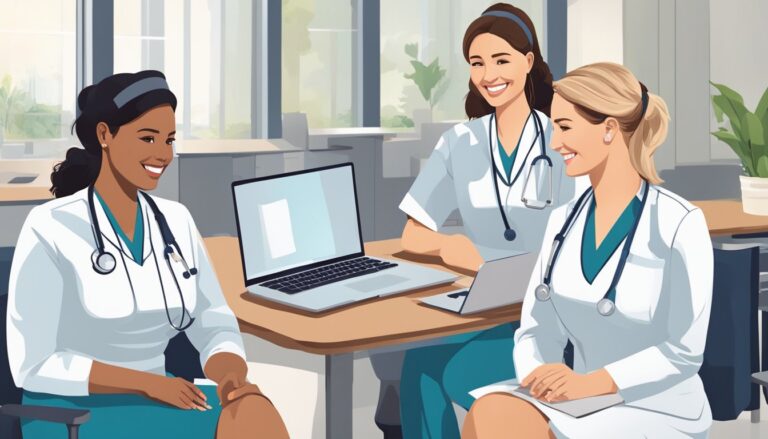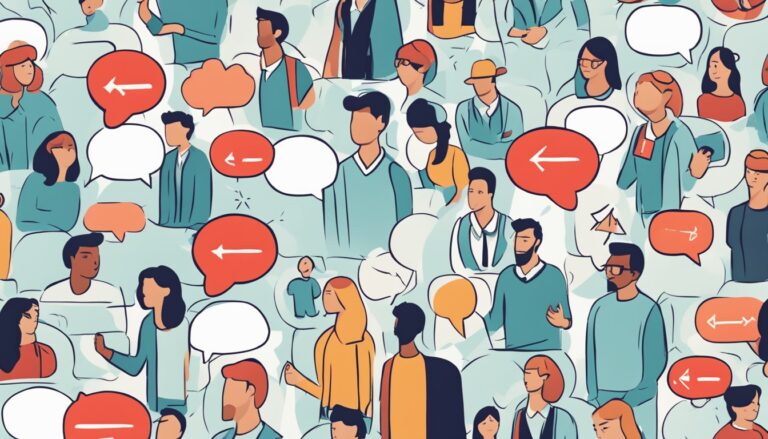100+ Pharmacy Tech Interview Questions: Ace Your Upcoming Interview
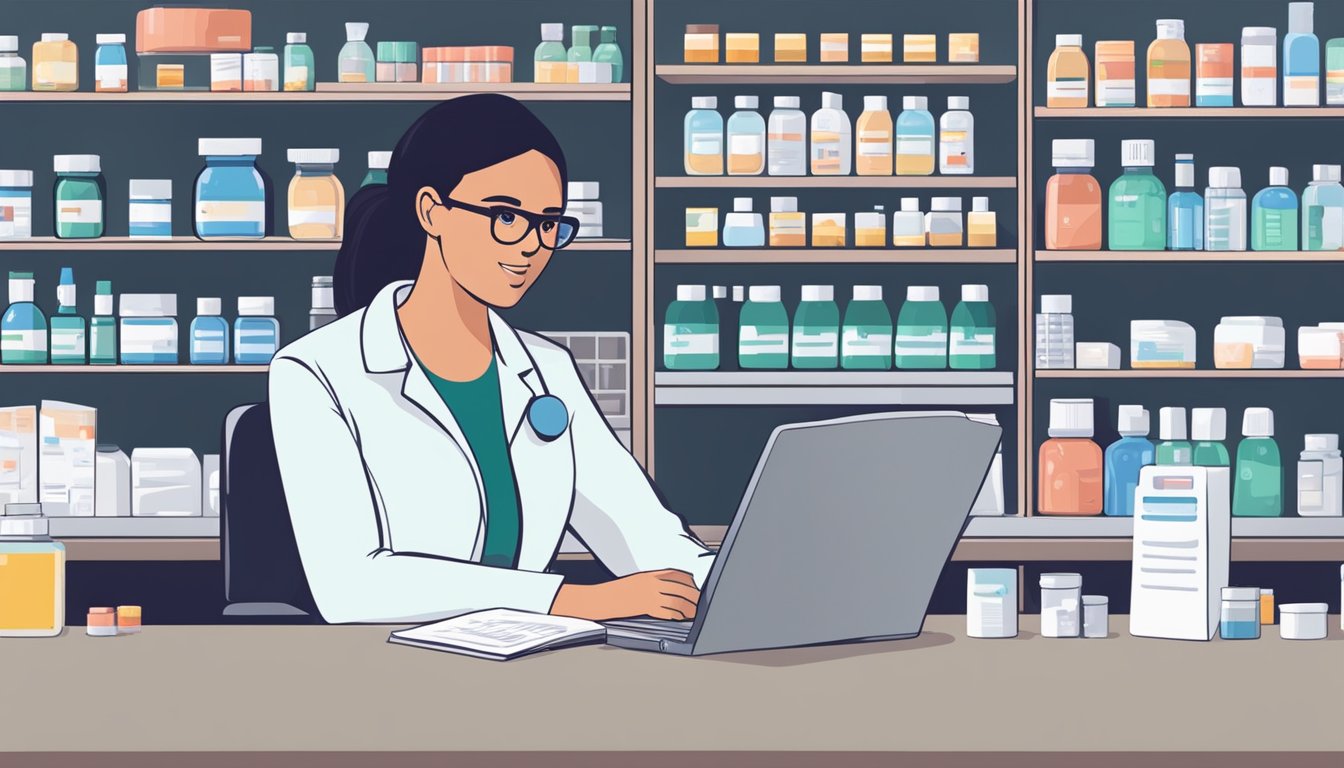
You play a crucial role in the healthcare system. Your job involves assisting pharmacists in dispensing prescription medications to patients, and you must exhibit precision, attention to detail, and strong communication skills. In this article, we will cover more than 100 Pharmacy Tech Interview Questions.
The interview process for this position is designed to assess your proficiency in these areas.
You will be asked a variety of questions that revolve around your knowledge of medications, your ability to handle prescriptions accurately, and your skills in dealing with customers and patients in a pharmacy setting.
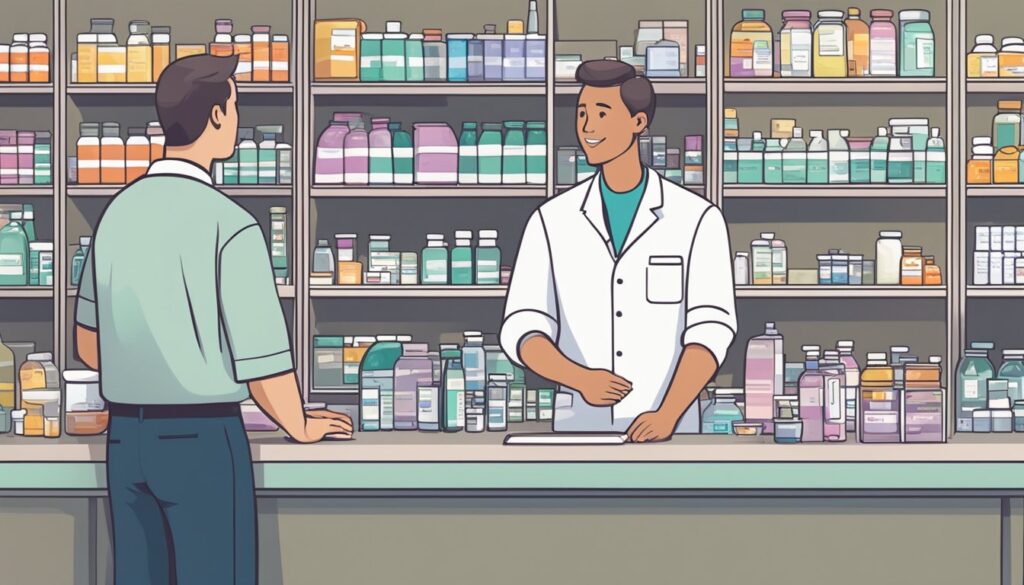
When preparing for a pharmacist interview, it’s essential to familiarize yourself with common questions that employers ask. You should expect to articulate your understanding of pharmaceutical terminology, demonstrate your ability to manage inventory, and discuss your experience in maintaining patient confidentiality.
Interviewers will likely probe your past experiences to evaluate how you handle the pressures of a busy pharmacy environment, including dealing with insurance issues and ensuring patient safety.
Understanding the role’s responsibilities and the skills required will allow you to present yourself as a capable and confident candidate.
Interviewers look for evidence of your problem-solving abilities, interpersonal skills when interacting with patients, and commitment to ongoing professional development.
Remember, a well-prepared applicant is one who can show not only their technical ability but also their dedication to providing exemplary patient care.
Page Contents
- 1 General Questions Pharmacy Tech Interview
- 2 Sample Interview Questions
- 3 List of 100 Pharmacist/Pharmacy Tech Interview Questions
- 4 Background Questions Pharmacy Technician
- 5 Leadership Principles Pharmacy Interview Questions
- 6 Job-Specific Duties Pharmacy Interview Questions
- 7 Professional Development
- 8 Conclusion
General Questions Pharmacy Tech Interview
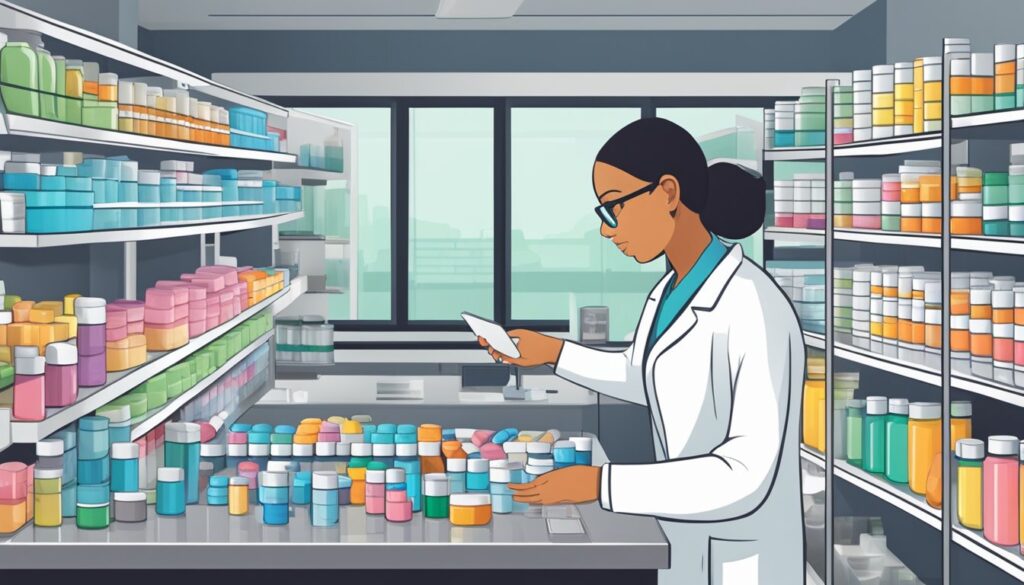
During a pharmacy interview, expect to encounter general questions that assess your experience, education, and suitability for the position.
The interviewer aims to understand your background, learn from your previous mistakes, and gauge how you manage stress. Prepare to articulate your answers confidently and clearly.
- Tell me about yourself.
- Highlight relevant experience and education briefly.
| Question | Purpose | Tip |
|---|---|---|
| What’s your experience in a pharmacy setting? | To assess your practical knowledge. | Reference specific roles and duties. |
| Can you describe your education and training? | To verify qualifications. | List certifications and relevant courses. |
| Have you ever made a mistake at work? How did you handle it? | To evaluate integrity and problem-solving. | Be honest and focus on the resolution. |
- How do you handle stress in the workplace?
- Discuss coping strategies and support systems.
- What qualities do you think are important in a pharmacy technician?
- Align your answers with the position’s requirements.
- Describe a time when you provided excellent customer service.
- Use a specific example that shows your dedication.
Remember, your responses should reflect a clear understanding of the role and its challenges, while also showcasing your readiness to be an effective team member in a pharmacy setting.
Sample Interview Questions
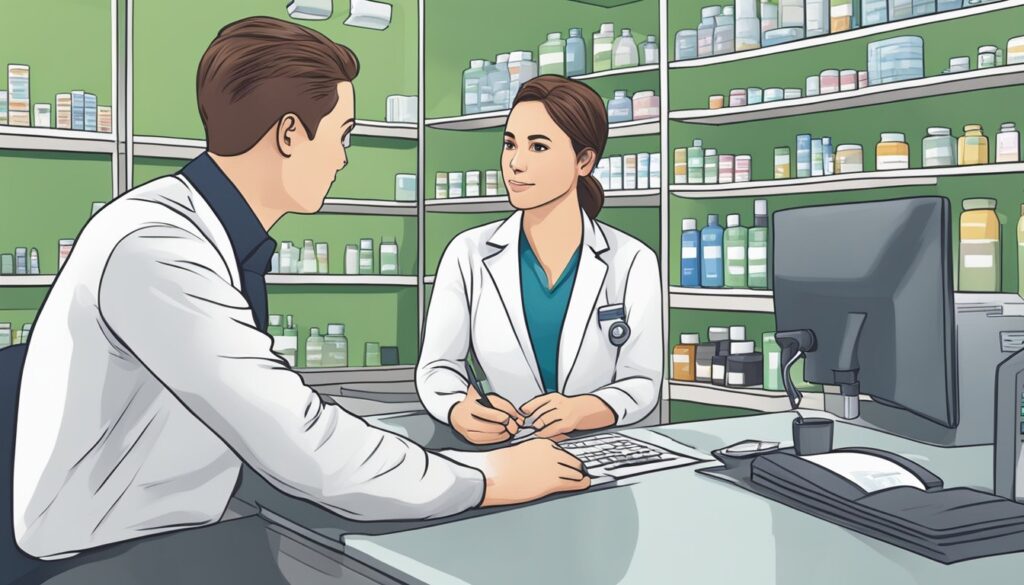
When preparing for a pharmacist/pharmacy technician job interview, it is essential to familiarize yourself with the types of questions you may encounter. Below is a series of interview questions that can help you demonstrate your competence and readiness for the position.
General Questions:
- Can you tell us a bit about your experience as a pharmacy technician?
- What has motivated you to pursue a career as a pharmacist?
- How do you keep up with the latest developments in the pharmaceutical field?
Situational Questions:
- If a customer had a question about their medication that you couldn’t answer, how would you handle it?
- Describe a time when you had to work under pressure. How did you manage the situation?
Skill-related Questions:
- Are you familiar with our pharmacy management system? If not, how would you go about learning it?
- Can you explain the importance of accuracy when dispensing medications?
Customer Service Questions:
- How would you deal with an upset or irate customer?
- Describe an experience where you provided exceptional customer service as a pharmacy technician.
Motivational Questions:
- What aspects of being a pharmacy technician do you find most rewarding?
- How do you stay motivated in a job that can sometimes be repetitive?
As a candidate, you should prepare to discuss these topics confidently, drawing on past experiences and demonstrating your commitment to the role.
List of 100 Pharmacist/Pharmacy Tech Interview Questions
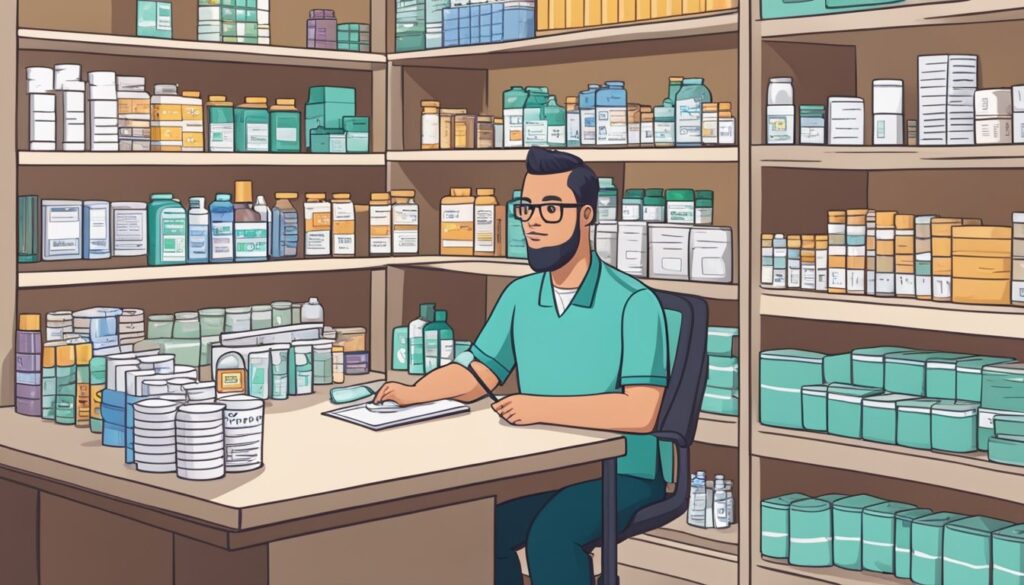
When preparing for a pharmacist/pharmacy tech interview, consider these questions, which cover a range of situational scenarios, job knowledge, and related topics:
- Can you tell us about your experience working in a pharmacy setting?
- How do you prioritize and manage your tasks in a fast-paced pharmacy environment?
- What steps do you take to ensure accurate medication dispensing and patient safety?
- How do you handle difficult or irate customers in a pharmacy setting?
- What do you know about different drug classifications and their uses?
- How do you stay updated with the latest pharmaceutical developments and medications?
- Can you describe a time when you had to resolve a medication error or discrepancy?
- What strategies do you use to maintain inventory control in a pharmacy?
- How do you handle confidential patient information and maintain patient privacy?
- What motivates you to pursue a career in pharmacy?
- How do you handle medication recalls and communicate them to patients and healthcare providers?
- Can you discuss a challenging situation you faced in a pharmacy and how you resolved it?
- What do you understand about pharmaceutical compounding and its importance in pharmacy practice?
- How do you ensure compliance with pharmacy laws and regulations in your work?
- Can you explain the process of verifying prescriptions and identifying potential issues or discrepancies?
- What do you know about medication interactions and their implications for patient safety?
- How do you handle medication shortages and find suitable alternatives for patients?
- Can you describe your experience with using pharmacy software and technology for dispensing and documentation?
- What strategies do you use to promote medication adherence and patient education?
- How do you collaborate with other healthcare professionals to ensure optimal patient care?
- Can you discuss a time when you had to counsel a patient on their medication regimen?
- What do you understand about the role of a pharmacy technician in supporting pharmacists and patient care?
- Can you describe your experience with handling and disposing of hazardous pharmaceutical waste?
- What do you know about the role of a pharmacy technician in managing medication inventory and ordering supplies?
- How do you handle medication labeling and packaging to prevent errors and ensure clarity for patients?
- Can you discuss a time when you had to manage a high volume of prescriptions and maintain efficiency in your work?
- What do you understand about the importance of medication reconciliation in the healthcare system?
- How do you prioritize patient safety and well-being in your role as a pharmacy technician?
- How do you handle communication with prescribers to clarify or verify prescription orders?
- Can you discuss a time when you had to handle a medication with special storage or handling requirements?
- What do you know about the regulations and guidelines for controlled substances in a pharmacy setting?
- How do you handle medication recalls and communicate them to patients and healthcare providers?
- Can you describe your experience with providing immunizations or other clinical services in a pharmacy?
- What do you understand about the process of medication therapy management and its impact on patient care?
- How do you ensure accuracy and precision when measuring and compounding medications?
- Can you discuss a time when you had to handle a medication with special storage or handling requirements?
- How do you handle medication recalls and communicate them to patients and healthcare providers?
- Can you describe your experience with providing immunizations or other clinical services in a pharmacy?
- What do you understand about the process of medication therapy management and its impact on patient care?
- Can you discuss a time when you had to handle a medication with special storage or handling requirements?
- What do you know about the regulations and guidelines for controlled substances in a pharmacy setting?
- How do you handle medication recalls and communicate them to patients and healthcare providers?
- Can you describe your experience with providing immunizations or other clinical services in a pharmacy?
- What do you understand about the process of medication therapy management and its impact on patient care?
- How do you ensure accuracy and precision when measuring and compounding medications?
- Can you discuss a time when you had to handle a medication with special storage or handling requirements?
- What do you know about the regulations and guidelines for controlled substances in a pharmacy setting?
- How do you handle medication recalls and communicate them to patients and healthcare providers?
- Can you describe your experience with providing immunizations or other clinical services in a pharmacy?
- What do you understand about the process of medication therapy management and its impact on patient care?
- How do you ensure accuracy and precision when measuring and compounding medications?
- Can you discuss a time when you had to handle a medication with special storage or handling requirements?
- How do you handle medication recalls and communicate them to patients and healthcare providers?
- Can you describe your experience with providing immunizations or other clinical services in a pharmacy?
- What do you understand about the process of medication therapy management and its impact on patient care?
- How do you ensure accuracy and precision when measuring and compounding medications?
- Can you discuss a time when you had to handle a medication with special storage or handling requirements?
- What do you know about the regulations and guidelines for controlled substances in a pharmacy setting?
- How do you handle medication recalls and communicate them to patients and healthcare providers?
- Can you describe your experience with providing immunizations or other clinical services in a pharmacy?
- What do you understand about the process of medication therapy management and its impact on patient care?
- How do you ensure accuracy and precision when measuring and compounding medications?
- Can you discuss a time when you had to handle a medication with special storage or handling requirements?
- What do you know about the regulations and guidelines for controlled substances in a pharmacy setting?
- How do you handle medication recalls and communicate them to patients and healthcare providers?
- Can you describe your experience with providing immunizations or other clinical services in a pharmacy?
- What do you understand about the process of medication therapy management and its impact on patient care?
- How do you ensure accuracy and precision when measuring and compounding medications?
- Can you discuss a time when you had to handle a medication with special storage or handling requirements?
- What do you know about the regulations and guidelines for controlled substances in a pharmacy setting?
- How do you handle medication recalls and communicate them to patients and healthcare providers?
- Can you describe your experience with providing immunizations or other clinical services in a pharmacy?
- What do you understand about the process of medication therapy management and its impact on patient care?
- How do you ensure accuracy and precision when measuring and compounding medications?
- Can you discuss a time when you had to handle a medication with special storage or handling requirements?
- How do you handle medication recalls and communicate them to patients and healthcare providers?
- Can you describe your experience with providing immunizations or other clinical services in a pharmacy?
- What do you understand about the process of medication therapy management and its impact on patient care?
- How do you ensure accuracy and precision when measuring and compounding medications?
- Can you discuss a time when you had to handle a medication with special storage or handling requirements?
- What do you know about the regulations and guidelines for controlled substances in a pharmacy setting?
- What do you understand about the process of medication therapy management and its impact on patient care?
- What do you understand about the process of medication therapy management and its impact on patient care?
- Which certifications do you have for this job profile?
- Can you explain the difference between generic and brand-name medications?
- What is the role of a pharmacy technician in dispensing medication?
- Describe your experience with pharmacy software systems.
- How do you ensure accuracy when filling prescriptions?
- What are the steps you take to maintain patient confidentiality?
- Explain the process of verifying insurance information for prescription orders.
- How do you stay updated on new medications and developments in the pharmaceutical industry?
- Describe a situation where you had to educate a patient about their medication.
- Describe a situation where you had to communicate with a non-English speaking patient.
- How do you handle situations where patients are not compliant with their medication regimen?
- What strategies do you use to ensure clear communication with pharmacists and other team members?
- Can you discuss a time when you had to handle a sensitive medical issue with a patient?
- What steps do you take to prevent medication errors and ensure patient safety?
- How do you handle situations where a patient’s prescription needs clarification?
- Can you discuss a time when you identified a potential drug interaction?
- How do you ensure that your actions align with ethical standards in pharmacy practice?
This list provides a foundation, touching on various aspects of what you may encounter during your interview. Tailoring your responses with concrete examples and emphasizing your dedication to the pharmacy technician profession will demonstrate your ability to remain resilient and motivated in this role.
Background Questions Pharmacy Technician
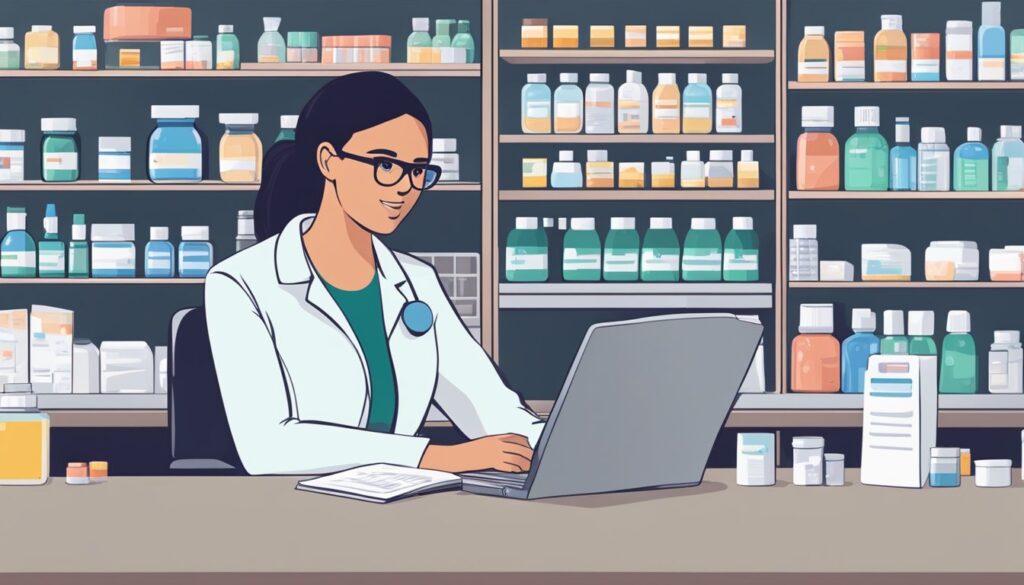
When preparing for a pharmacy job interview, anticipate questions that explore your qualifications and work history.
Your potential employer will assess your suitability for the fast-paced pharmaceutical industry through these inquiries.
Certifications and Education:
- Are you a certified pharmacy technician/pharmacist? Please provide details of your certification.
- What relevant pharmacological education have you completed?
Work Experience:
- Can you describe your previous work experience in the healthcare or pharmaceutical industry?
- How have you demonstrated accuracy and attention to detail in past roles?
Skill Set:
- Enumerate your customer service and communication skills.
- Discuss your experience working in a fast-paced environment and prioritizing tasks effectively.
Adherence to Standards:
- Explain how you ensure the accuracy of your work when dispensing medications.
- What methods do you use to maintain a high level of attention to detail?
Culture Fit:
- How do you align with our company’s culture and values?
- Can you give an example of how you’ve contributed positively to a team in a previous job?
Continued Growth:
- What recent professional development have you undertaken to stay updated with the pharmaceutical industry?
- Describe a time when you had to research to resolve a customer inquiry or improve your job performance.
Be prepared to discuss these topics substantively, as they offer a snapshot of your readiness for the role. Tailor your responses to reflect the community your prospective employer serves, and be sure to highlight your ability to contribute to a thriving pharmacy team.
Leadership Principles Pharmacy Interview Questions

When interviewing for a pharmacy tech position, you may encounter questions designed to assess your leadership abilities. It’s crucial to demonstrate not just your knowledge of medications but also how you handle responsibility, lead a team, and tackle challenges.
- Responsibility
- Can you provide an example of a time when you took responsibility for an error at work and how you addressed it?
This question evaluates your accountability and learn your approach to rectify mistakes, which is essential in pharmacy work where accuracy can impact patient health.
- Teamwork
- Describe a situation where you had to collaborate with others to achieve a common goal. What role did you play?
Your answer reveals how you interact in a team dynamic, emphasizing your teamwork skills and your contribution to collective success.
- Leadership
- What are the key qualities a leader should possess in a pharmacy setting?
Explore your understanding of leadership within the context of a pharmacy, gauging your potential to manage and inspire colleagues.
- Challenges
- Tell us about a challenging moment you faced in a pharmacy and how you overcame it.
This probes your problem-solving skills and resilience, both of which are integral in a fast-paced pharmacy environment.
Prepare concise, specific examples to illustrate your experiences with responsibility, teamwork, leadership, and overcoming obstacles. Your ability to reflect on these situations confidently and clearly will serve you well in portraying the leadership principles essential for a pharmacy tech role.
Job-Specific Duties Pharmacy Interview Questions
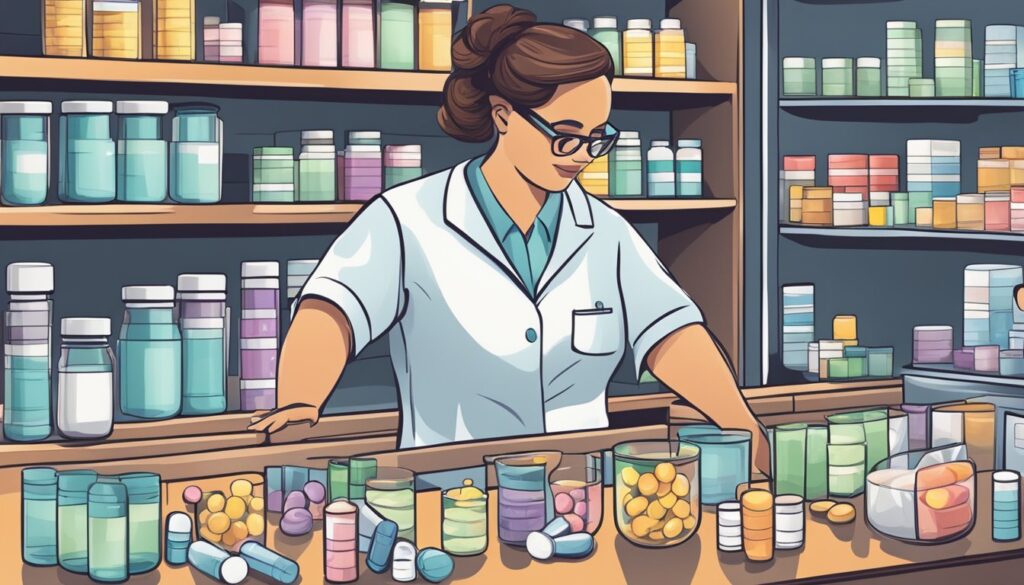
When preparing for an interview as a pharmacy technician, it’s crucial to understand the specific duties you’ll be expected to perform. Your role is essential in ensuring efficient patient care through various tasks related to medication and health management.
- Filling Prescriptions: One of your primary responsibilities is accurately filling prescriptions. This includes counting tablets, labeling bottles, and ensuring that patients receive the correct medication as per the doctor’s orders.
- Dispensing Medications: Beyond filling prescriptions, you play a key role in dispensing medications, which requires a detailed knowledge of pharmacy practices and meticulous attention to avoid errors.
- Patient Care: You’ll interact directly with patients, offering them guidance on how to take their medications. It’s important to be a compassionate communicator to effectively assist and educate patients.
- Team Player: As a pharmacy technician, you’ll work closely with pharmacists and other healthcare professionals. Being a collaborative team player is essential in a hospital pharmacy or any other healthcare setting.
Remember, your role is to support the day-to-day operations of the pharmacy, which can vary depending on the specific work environment. Familiarize yourself with these core duties to showcase your readiness to contribute effectively to patient care and pharmacy operations.
Professional Development
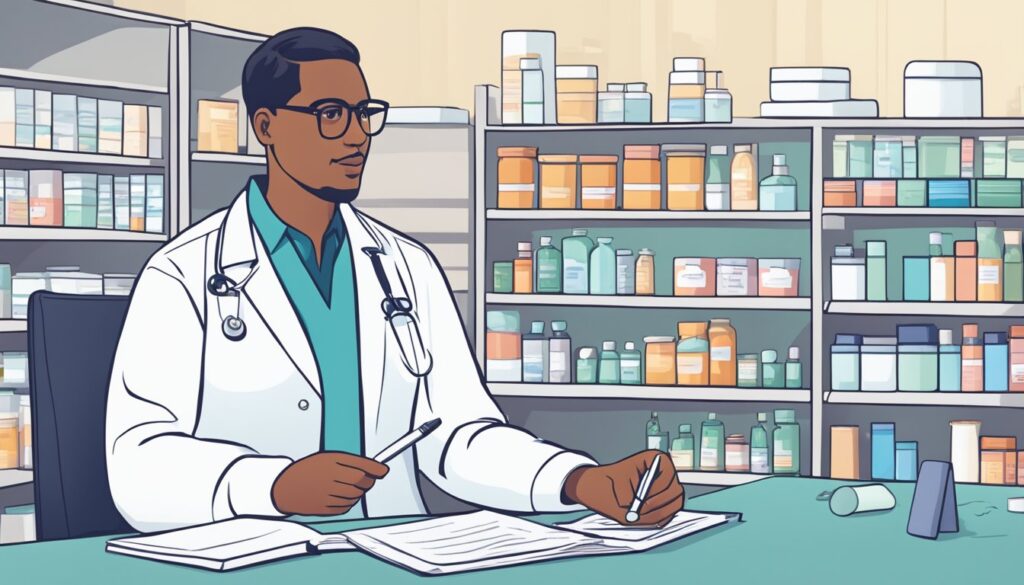
As a pharmacy technician, your professional development is key to your career progression. It is important to engage in continuing education to stay current with the latest practices and regulations. Typically, you are required to complete a certain number of continuing education (CE) hours to maintain your certification.
On-the-job training offers valuable experience that can’t be learned from textbooks. Your skillset will expand as you work alongside pharmacists, learning new techniques, and navigating the complexities of pharmaceutical care. It’s crucial to seize every opportunity for hands-on learning to sharpen your abilities.
Your professional growth hinges on your dedication to learning and adapting. Regularly seek feedback from supervisors, and be proactive in identifying areas where you can improve. Aim to take on responsibilities that will stretch your talents and push you out of your comfort zone.
Lastly, community involvement can enhance your role as a pharmacy technician. Participating in health fairs, volunteering for public health initiatives, or joining professional organizations can connect you to a network of peers and mentors. Such involvement can provide insights into patient care beyond the pharmacy counter, fostering a deeper understanding of the community you serve.
| Activity | Benefits |
|---|---|
| Continuing Education | Keeps knowledge up-to-date; mandatory for recertification |
| On-the-Job Training | Practical experience; enhances technical skills |
| Professional Growth | Opens up advancement opportunities; personal skill enhancement |
| Community Involvement | Networking; broader healthcare perspective |
Stay consistent with your professional development efforts and watch your career as a pharmacy technician flourish.
Conclusion
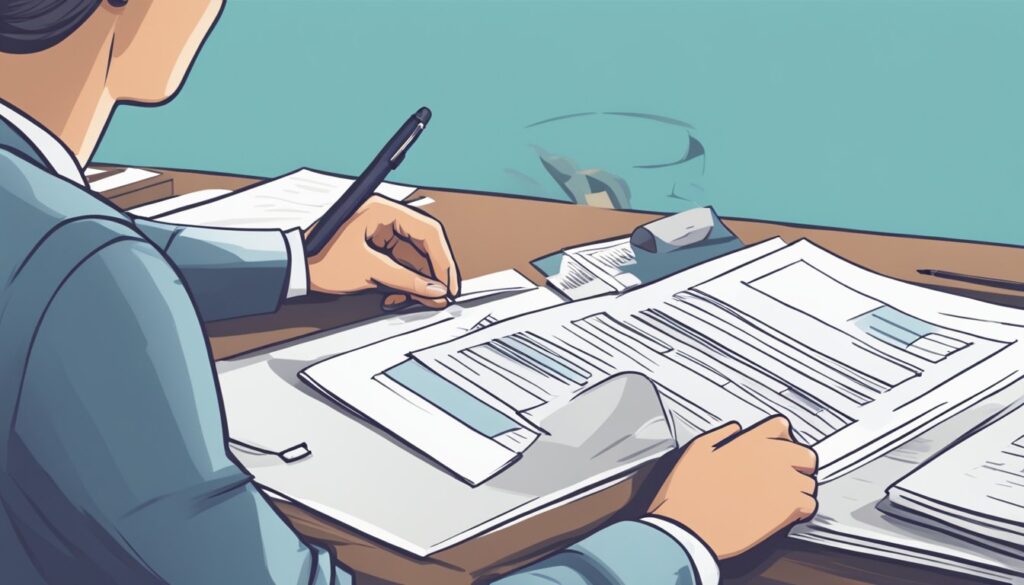
Preparing for a pharmacy interview necessitates a grasp of both technical knowledge and customer service skills. Your success will depend on your ability to demonstrate:
- Competence in pharmacy practices.
- Efficiency in performing tasks.
- Understanding of customer confidentiality and ethics.
- Ability to provide exceptional customer service.
Remember to:
- Review common medications and their uses.
- Practice calculations and measurements.
- Familiarize yourself with pharmacy terms and laws.
- Formulate answers that showcase your experience in handling prescriptions and interacting with customers.
You should also prepare questions for the interviewer about the pharmacy’s operations and culture. It shows your interest in the position and helps you assess if the job is the right fit for you.
When the interview day arrives:
- Dress professionally
- Arrive on time
- Bring necessary documents
- Maintain a calm and focused demeanor
Your efforts in interview preparation will communicate your dedication to becoming a valued member of the pharmacy team.


